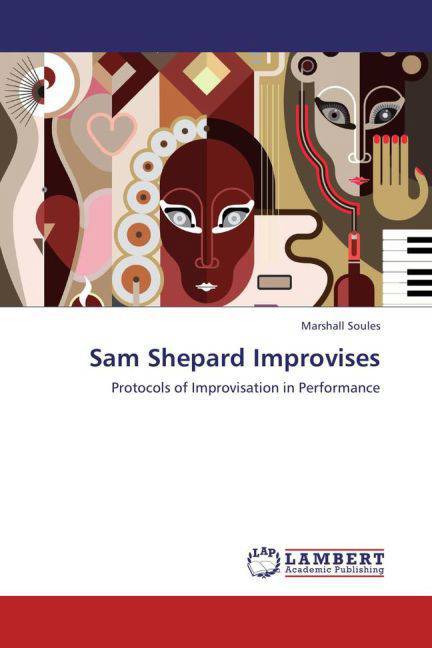
Door een staking bij bpost kan je online bestelling op dit moment iets langer onderweg zijn dan voorzien. Dringend iets nodig? Onze winkels ontvangen jou met open armen!
- Afhalen na 1 uur in een winkel met voorraad
- Gratis thuislevering in België vanaf € 30
- Ruim aanbod met 7 miljoen producten
Door een staking bij bpost kan je online bestelling op dit moment iets langer onderweg zijn dan voorzien. Dringend iets nodig? Onze winkels ontvangen jou met open armen!
- Afhalen na 1 uur in een winkel met voorraad
- Gratis thuislevering in België vanaf € 30
- Ruim aanbod met 7 miljoen producten
Zoeken
€ 77,95
+ 155 punten
Omschrijving
While the use of protocols - "long-established codes" determining "correct procedure" - seems to contradict the implied freedom of improvisation, research in performance practices reveals how improvisation is typically framed by voluntary constraints or guidelines. American playwright and actor Sam Shepard incorporates elements of improvised writing, music, and acting into his early plays beginning in the mid-1960s. Shepard was influenced by Kerouac's "spontaneous bop prosody" and both used jazz improvisation as a model for writing and performance. Focusing on Shepard's earlier plays, writing, and interviews, this wide-ranging study delves deeply and critically into notions of play and improvisation across the arts, and advances the concept of an improvised character with distinctive voice and attitude. Improvisation as "repetition and revision" (Gates) is also a form of Signifin(g), and readers will discover rich veins of pan-cultural insight into improvised performance, its "cruel contradictions," and delightful parodies. Extensive research and lively commentary will stimulate anyone interested in drama, performance, music, writing, play, and character.
Specificaties
Betrokkenen
- Auteur(s):
- Uitgeverij:
Inhoud
- Aantal bladzijden:
- 408
- Taal:
- Engels
Eigenschappen
- Productcode (EAN):
- 9783659238352
- Uitvoering:
- Paperback
- Afmetingen:
- 150 mm x 220 mm

Alleen bij Standaard Boekhandel
+ 155 punten op je klantenkaart van Standaard Boekhandel
Beoordelingen
We publiceren alleen reviews die voldoen aan de voorwaarden voor reviews. Bekijk onze voorwaarden voor reviews.











